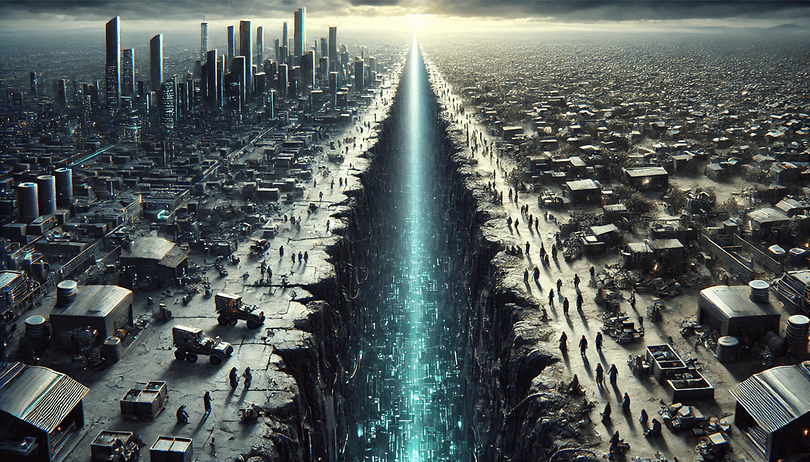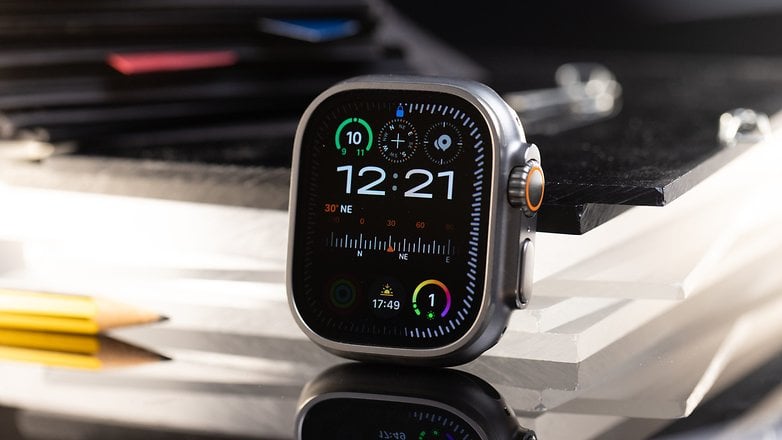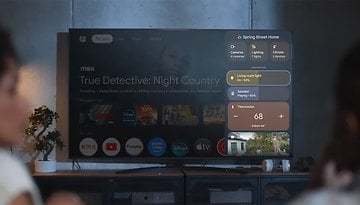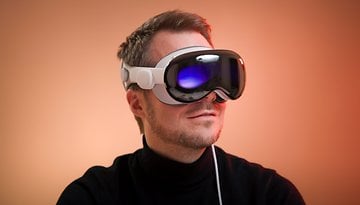How a Two-Tier Society Emerges with Artificial Intelligence


My view of artificial intelligence (AI) has always been ambivalent until now. With every new development, I tend to oscillate between euphoria and horror. This is because it is so breathtaking what AI can do, but at the same time, there are also potential dangers. I would like to talk about one of these dangers today. I believe the digital divide has massively widened with AI, dividing society across many levels.
Furthermore, I do celebrate artificial intelligence, trust me. AI enables us to do so many incredible things that we currently have no idea are possible. In my opinion, the introduction of AI into our society is likely to have a greater impact than the printing press, industrialization, the introduction of the computer, or even the internet.
As Peter Parker knew: with great power comes great responsibility! Yes, responsibility is not exactly the specialty of our species. I can generate electricity or blow up cities with nuclear power. We have long been known for this human delusion that we can turn a great technology into a disaster. I fear that this dubious talent will come to the fore again with AI.
- Also read about AI: The ChatBot, my best friend?
Don't worry, I would rather not speculate here about when exactly someone will use AI to create a deadly virus that will wipe humanity out, or when robots will subjugate humans. Instead of taking a technical view, I would like to view AI from the social perspective, and I hope you are equally open to the idea.
Diving into the digital trench at full speed
To be more specific, I'm referring to the societal divide. There is this rift that runs right through us. Autocrats and populists stir up fears and deepen this rift with wanton abandon. There are so many rifts that divide the world: the rich and poor, the north and south, black and white. Technology is not exempt from this 'curse', causing us to break apart as a society. We have been talking about the digital divide since the 1990s.
All of us are familiar with the digital divide. We know that some of us are very confident online, while others face seemingly insurmountable hurdles with each email we have to write and every page we visit. The digital divide is also a regional one: nine out of ten people in Western countries are online, but only one or two out of ten people in poor African countries are, is just one such example.
Regardless of whether we look at nations, companies, or ourselves, this digital divide affects every area of our lives and every corner of the planet —and I fear AI will massively exacerbate this problem. We are on the way to a two-tier AI society and I would like to share a few examples of why I see this inevitability arrive.
Towards a two-tier society thanks to AI
The financial aspect plays a major role when it comes to who will be able to use artificial intelligence in the future and to what extent. Those who have money will have more opportunities to do so (No shit, Sherlock!)
So let's talk briefly about how this manifests itself with money before proceeding to the potential concerns that arise.
Money makes the world go round
A few weeks ago, I casually subscribed to Google Gemini to test Gemini Advanced out. It was free for a month, so off I went. If you were to subscribe via Google One, you pay a mere $19.99 each month. I was really impressed by what Google's latest language model in version 1.5 Pro could offer.
I've long been using the “normal” free version on my smartphone since. And yes, I'm amazed at how much crappier the AI is in comparison. I don't want to diss Gemini Live in this version, but I think I can even have more engaging discussions with my oven.
Let's look at Apple Intelligence as another example. Regardless of how Apple AI is still a long way off, you're dependent on really up-to-date, expensive hardware. Do you want to summarize or correct your texts, create funny emojis, and finally receive contextual information from Siri? If so, even with a basic iPhone 15, you're still staring down the drain. You will need at least a Pro model from the iPhone 15 series or a brand new iPhone 16 (review) that features the corresponding hardware firepower.
This is not to single Apple out at this point, by the way. All manufacturers have to overcome certain hardware hurdles to conjure up smart AI features on smartphones or use a different platform. However, it's not just the products that are cost-intensive for end consumers. Data centers are already account for 3 percent of total electricity consumption in the USA as of 2022, and is projected to rise to 8 percent by the end of this decade. This will rapidly increase thanks to AI. After all, a single query on ChatGPT consumes ten times as much electricity as a Google search.
Financial/social divide
From what I wrote, there is an immediate wedge that is being driven through society. In the USA, you're practically ostracized as a young person if you don't own an iPhone. Chat bubbles in the wrong color make you an outsider quickly. This trend will intensify if you are foolish enough to be one of those who cannot use the great, fancy features in sinfully expensive smartphones.
It's the same as with your social status: are you missing out on trending brand-name clothes, can't afford the expensive concerts or holidays, can't afford to eat at a restaurant often each month? Tough luck! Even a cheap smartphone quickly becomes a symbol of less social participation.
Educational divide
While the issue of a lack of social participation may still be manageable, the issue of education is much more explosive. The high costs for certain LLMs, selected software, and for the necessary infrastructure could ensure that the quality of the AI used by pupils to learn depends on the school.
Oh, you didn't make it to the best elite school in town? That's too bad then, have fun with the free version of ChatGPT. The lessons, in which each individual benefits from an AI agent tailored to their personal needs, are reserved for those who are better off.
You can work out the consequences from here: Talents and weaknesses are recognized better and, above all, individually. This means the right areas can be supported or improved. This increases the chance of good grades, where good grades increase the chance of obtaining a good degree, and a good degree increases the chance of a potentially better job. Yes, AI does play a role when teenagers are already setting the course for their lives.
Professional divide
Once you are working, of course, nothing changes in terms of the relevance of AI. Self-employed/freelancers who cannot afford expensive AI tools may fall behind. Think of medium-sized companies that use cheap AI solutions, while their powerful competitors can afford to train their own AI models with huge amounts of data and thus tailor them perfectly to handle their problems.
Yes, we're already noticing it: if you get involved with AI and already know how to use the relevant tools, you are more productive at work because you take on fewer repetitive tasks. Therefore, you have more time for the more demanding parts of your job. If you are significantly less productive because you don't want to or can't use these AI tools? Tough luck then. You may be a great guy or a great colleague, but if you are always less productive than the rest, you will suffer.
In general, of course, AI will eliminate many jobs. According to a study by Goldman Sachs, AI could make it possible to save the labor force of 300 million full-time jobs through automation.
Age-related division
This point is similar to that of social participation, but with even greater consequences. Even today, it is often a problem for older people to cope with new technologies. Just think of the creepy ticket machines, some of which you have to have studied to get the tickets you want.
In addition to all the technical hurdles, there are other ones for senior citizens. In a few years' time, everyone will simply whisper to their smart assistant that they want to visit granny by train. Just one sentence will be enough for the AI to know where you would like to go, who exactly is meant and, of course, book you the right ticket. Meanwhile, the older guy, who has trouble using his cell phone, stands at the station and looks at the empty wall where the unnecessarily complicated ticket machines used to be.
Wherever companies see potential savings, they will cut back. And that means that analog technology will be dismantled wherever digital technology can take over—and that will also be at the expense of the older generation.
Medical divide
Personally, I believe AI will soon work wonders in the medical and healthcare sectors and help us to eradicate many a scourge of humanity. However, the question of price arises. Camila recently wrote a great article about how fitness trackers have developed thanks to AI. Within just a few years, they have evolved from dull pedometers to pure AI fitness and health coaches.

Here, too, it's worth taking a look at the equipment: what can an inexpensive fitness tracker like the Xiaomi Smart Band 9 (review) do and how much more can an Apple Watch Ultra 2 (review) deliver in comparison? It will make a difference to your health whether you can only measure calories, steps, and an approximate pulse, or whether an AI coach not only accompanies you constantly on your body, but also keeps your doctor up to date.
Please take a quick look at this video. Chrissy Marshalls, a deaf influencer, showed off her new Hearview glasses. All these years she had to rely on sign language and lip-reading to understand what someone says. These AR glasses now allow her to simply read everything someone says in front of her own eyes. There are unimagined possibilities for inclusion thanks to AI, but not everyone will be able to afford the hardware.
What about doctors themselves? What treatment options are there? Can your doctor compare your data with millions of others in seconds thanks to AI? Or do they simply rely on their own experience? AI makes the difference here, too!
… and that's just the beginning
I have only provided you a brief outline of the areas where access to AI will soon make a significant difference for us. There are so many other things we can discuss:
- Do I come from a country where there is stable, fast internet and access to powerful AI models? Or am I once again being left behind by technologically advanced nations?
- Am I disadvantaged in a country where English is not the first language because most outstanding LLMs are initially trained in English?
- As a musician, painter, poet, writer or photographer, will I be able to assert myself without AI against those whose creativity are augmented by AI?
- Will wars only result in human casualties among the technically inferior countries because AI-powered militaries only send smart robots and drones into theaters of war?
- Legal advice: There are AI-supported platforms that offer legal advice. These are often available free of charge, but are also very limited. If you need more comprehensive legal advice, you will have to pay.
- Can I access better, more comprehensive news thanks to AI, and am I increasing my media literacy through AI? Or will I fall for every fake news, no matter how cheap?
What do we do now?
Phew, I wanted to share a positive thought with you at the end, but what should it be? We're not really in a situation where we can just trumpet “everything will be fine” slogans. Am I convinced that everything will be fine? Yes, strangely enough, I am. My enthusiasm for technology and a solid naivety mean that I don't want to admit that we're going down the drain as a society with the best technology in the world.
Honestly? It looks bleak. We are working on the wrong social issues, holding on too tightly to the past, and getting bogged down in minor issues. Those who don't get involved in AI will be left behind by society. And if you want to get involved but don't have the means, you will have to find other ways.
Perhaps this is the best approach at the moment: be curious and see how you can use this technology and where you can use it. After all, there are already initiatives that aim to counteract this divide, such as open-source projects, libraries that provide AI tools and educational institutions that are committed to providing equal access to AI resources for everyone.
What else? Take an interest in politics and find out who will increase your chances. Your party doesn't talk enough about AI? Then get on your MPs' nerves and write to them. Be loud and demanding to your politicians. It may only be clutching at a tiny straw, but it's better than nothing.
AI can open doors to fabulous worlds and achievements. When is the right time to ensure that we all have the same opportunities to benefit from it? Now, right now!













